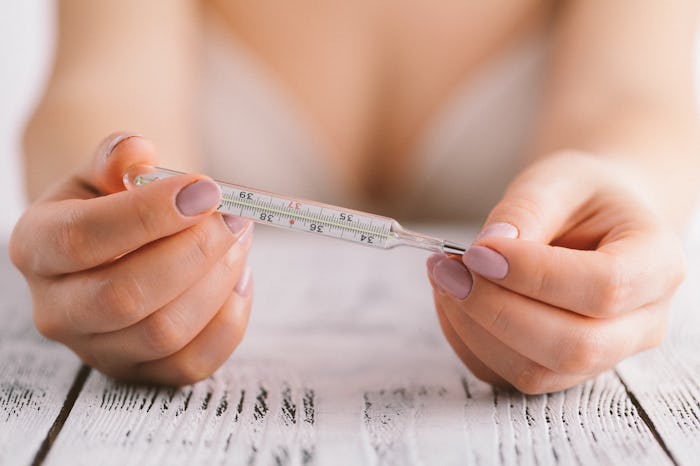Life

Why You May Be Less Fertile Postpartum
If you are thinking about getting pregnant again shortly after giving birth, moms' groups and old wives' tales may have you thinking it's impossible. The thought being that hormones will suppress ovulation, therefore not allowing the body to become pregnant. If you delve a little deeper, however, you may have also read that women get pregnant very soon after having a baby, too. So if you're asking yourself, "am I less fertile postpartum," you have to know that the answer isn't so concrete.
Your fertility depends on you, so every woman's chances of getting pregnant at any time depend on factors exclusive to the make-up of her own body. The average first day of ovulation postpartum happens on day 74, according to National Institutes of Health's study. Still, some women begin ovulating on day 25, barely a month after having a baby, according to Reuters Health. You also have to remember all the other factors pre-baby are in play when it comes to fertility postpartum, according to BBC Science. This includes your age, uterine health, stress levels, as well as the health of your partner's sperm
When you factor in all of these things, you may find that you are less fertile after just having had a baby. But that doesn't mean your chases of another pregnancy are non-existent. In fact, there's still a chance of getting pregnant even if you breastfeed, which many think is like a form of birth control.
Your fertility depends on many things postpartum, and while you may be a little less likely to get pregnant during this time, the chance is still there. It's best to wait before getting pregnant again soon after having a kid. According to U.S. Department of Health and Human Services, waiting at least 12 months before getting pregnant again apart will give your body time to fully recover. That recommendation also comes with the caution that babies who are conceived during mom's postpartum period can be born premature and experience many health issues.
When you are postpartum, you should still consider birth control. Talk with your OB-GYN on the best birth control methods for you.